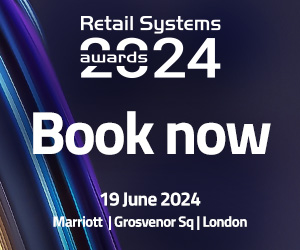Vodafone UK is to launch a range of Internet of Things (IoT) services, expected to remove barriers for UK adoption of the digital technology.
Vodafone is partnering with IoT.nxt, which is already part of the Vodafone Group, to deliver every part of an IoT solution with a single data management platform and the capability to integrate old and new devices in one system.
The telecommunications business will provide IoT sensors and devices, create a data management platform, and offer ongoing professional services. The offering will be available to all businesses, even those without specialist in-house capabilities.
The announcement of the IoT service launch is very timely, with Vodafone today releasing a report that finds investment in IoT in public sector buildings could reduce carbon emissions, reduce energy usage and save taxpayers up to £380 million annually.
“We’re making it easy for any business to adopt IoT. We’re taking away complexity, and making it simple to deploy, simple to manage, and simple to see the return on investment,” said Anne Sheehan, business director, Vodafone UK.
“With our colleagues at IoT.nxt we can be unique in the UK market – we’ll grow our leadership position from here, and deliver customers a digital capability that will prove invaluable in meeting the pressures of business today.”
Nico Steyn, chief economic officer, IoT.nxt said, “It’s great to be part of the Vodafone Group. After a successful collaboration with Vodacom in South Africa, we are thrilled to power the new era of Vodafone UK’s IoT strategy.
He added: “IoT is perceived by many businesses to be complex and bespoke, but it doesn’t have to be. We hope to change that perception with a platform which can be adapted to any business, and type of connection, and any use case.”
Latest News
-
Sainsbury’s partners with Microsoft to boost CX with AI
-
NCSC launches cyber protection service ahead of elections
-
UK industry experts launch cyber safety consortium
-
Microsoft asks China staff to consider relocating amid US-China tech tensions
-
Reddit partners with OpenAI to bring content to ChatGPT
-
Women in tech ‘marginally outpacing’ men with workplace GenAI
Bringing Teams to the table – Adding value by integrating Microsoft Teams with business applications
A decade ago, the idea of digital collaboration started and ended with sending documents over email. Some organisations would have portals for sharing content or simplistic IM apps, but the ways that we communicated online were still largely primitive.
Automating CX: How are businesses using AI to meet customer expectations?
Virtual agents are set to supplant the traditional chatbot and their use cases are evolving at pace, with many organisations deploying new AI technologies to meet rising customer demand for self-service and real-time interactions.
© 2019 Perspective Publishing Privacy & Cookies










Recent Stories